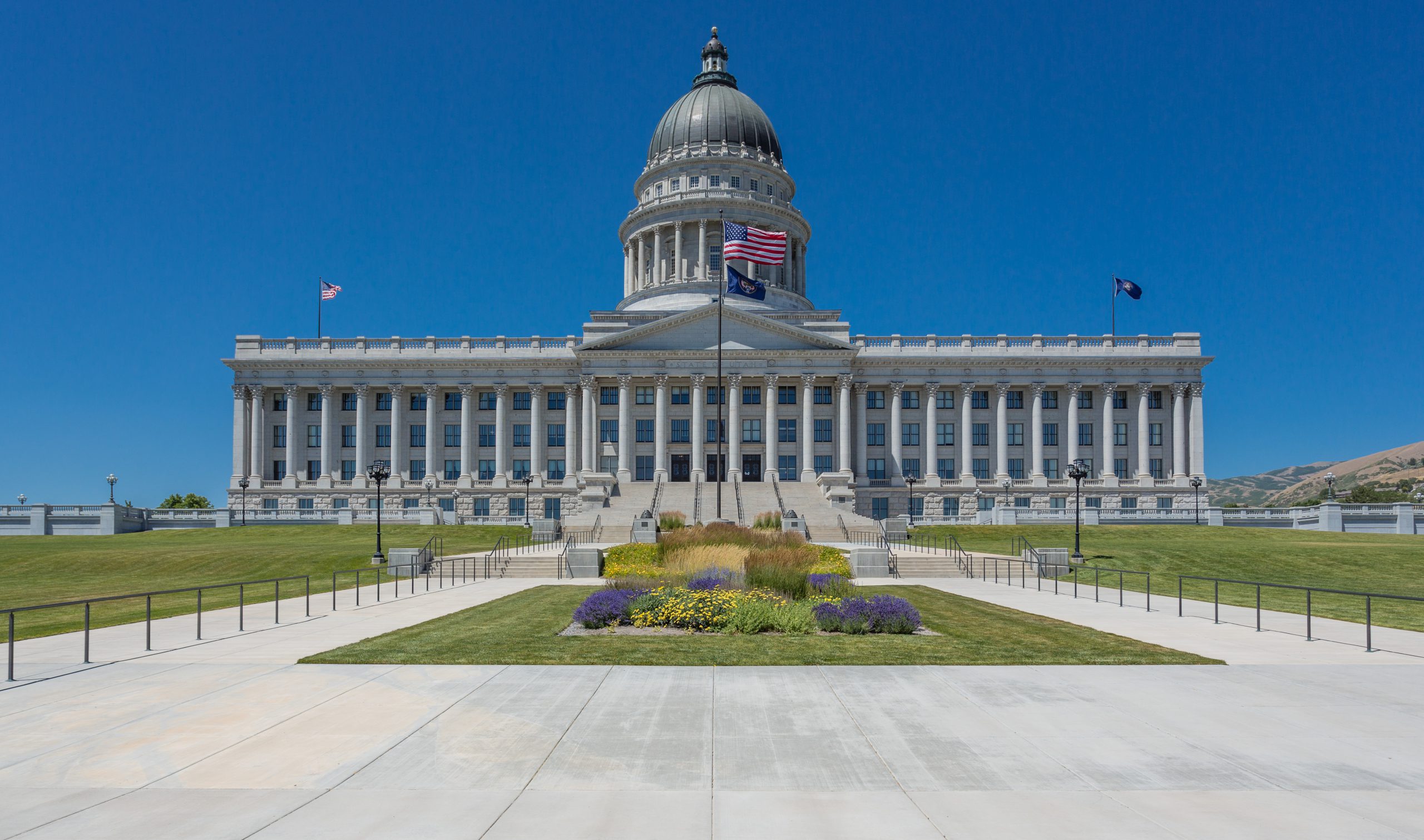Utah is among the top three states enacting the highest percentage of their introduced election-related legislation for the second year in a row. It is the only state among the top three in 2022 and 2023. Utah lawmakers enacted 12 of the 29 election-related bills (41.4%) introduced in 2023 and nine of 18 in 2022 (50%). Republicans were the sole sponsors of all but two of these bills. Utah is a Republican trifecta.
Joining Utah in the top three states in terms of bill enactment so far this year are Arkansas (45% of introduced election bills enacted) and South Dakota (42.1%), both of which are also Republican trifecta states. The most common topic of enacted bills in these states is counting and canvassing procedures (6 bills), followed by audits (5 bills). In 2022, Colorado (50%) and Connecticut (50%), both Democratic trifectas, rounded out the top three.
The most common topics of enacted legislation in Utah from both years were:
- Ballot access for candidates (5 bills).
- Counting and canvassing procedures (4 bills).
- Audits, ballot measures (initiative and referendum), voter ID for absentee/mail-in ballots, signature matching, vacancy procedures, enforcement against non-officials, absentee/mail-in voter assistance, cybersecurity, and physical security (3 bills each).
In Utah’s 2023 legislative session, whose regular session ended on March 3, the most commonly enacted bill topics were signature matching, and absentee/mail-in voter assistance (3 bills each). In 2022 it was ballot access for candidates (4 bills).
An example of a bill about ballot access for candidates is 2022’s SB0170 which, among other provisions, established a new filing period for candidates of a qualified political party to be elected at the next general election.
An example of a signature matching bill is 2023’s HB0037. This bill established a new signature matching requirement for absentee ballots. The change requires poll workers to verify that a signature is “reasonably consistent with the individual’s signature in the voter registration records” or verifiable by other means before determining that a mailed ballot shall be canvassed. This bill also requires election officers to establish a method of accessible voting to a voter with a disability who cannot vote by mail, providing an example of legislation addressing absentee/mail-in voter assistance.
An example of counting and canvassing procedures is 2022’s HB0264 which describes the voting process and determining winners in an alternate voting methods race depending on the voting method selected by a municipality participating in the state’s Municipal Alternate Voting Methods Pilot Project. The Municipal Alternate Voting Methods Pilot Project is a program established by the Utah legislature through HB35 in 2018 that allows municipalities to adopt ranked-choice voting for local elections.


